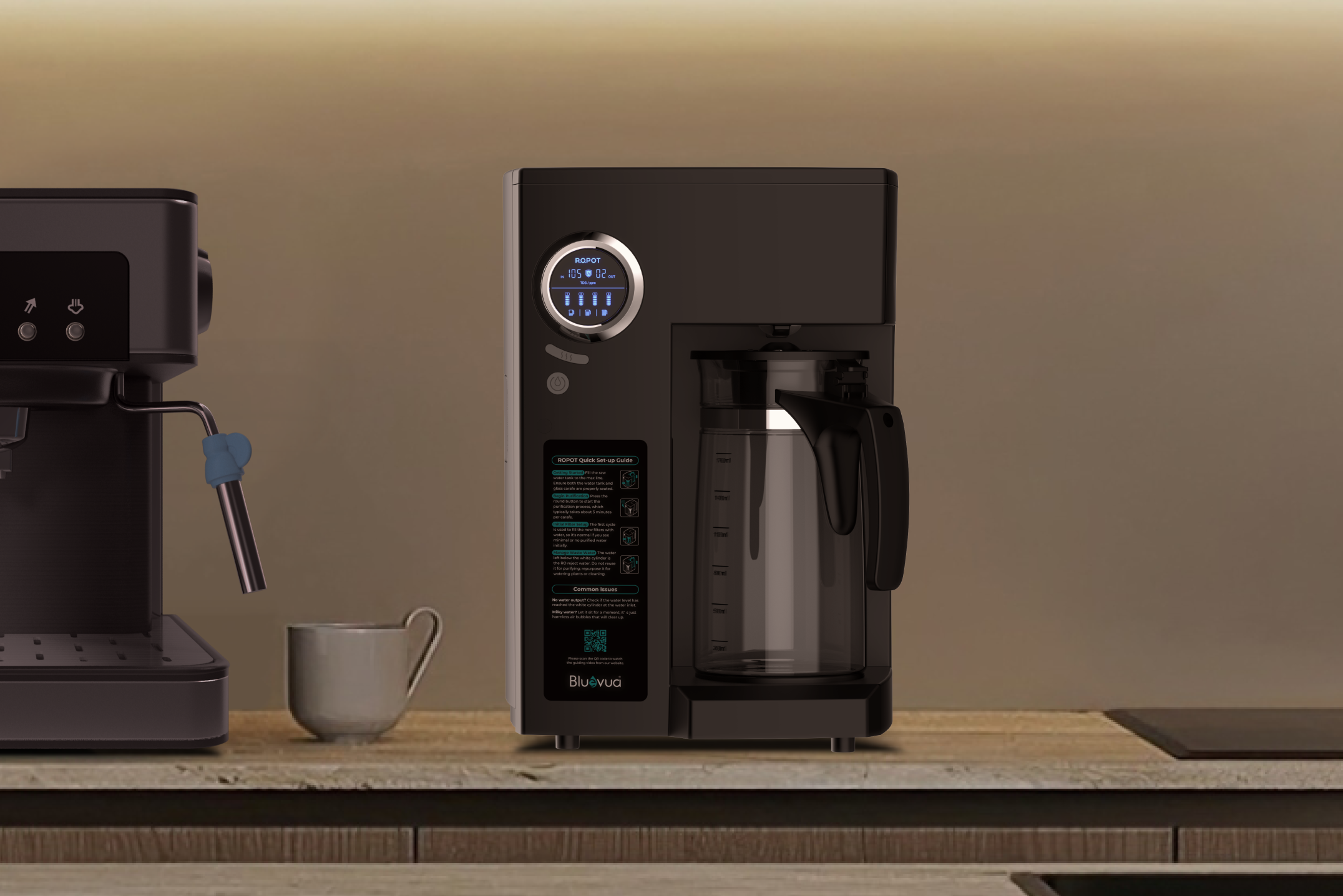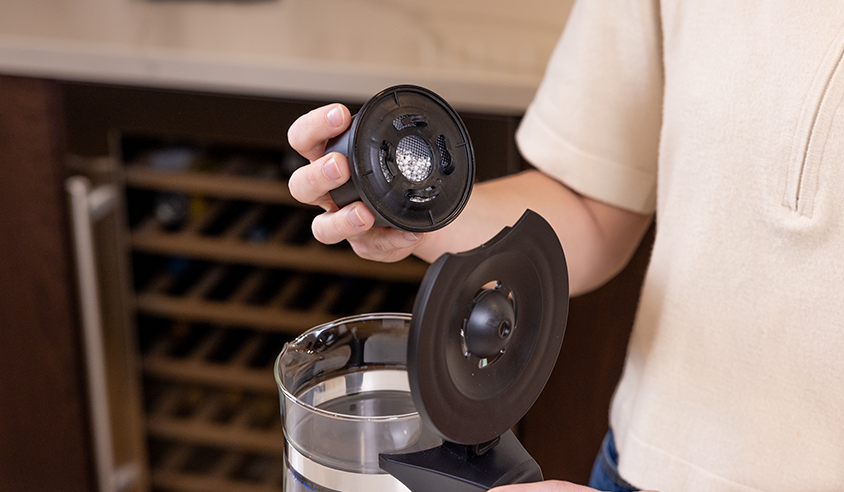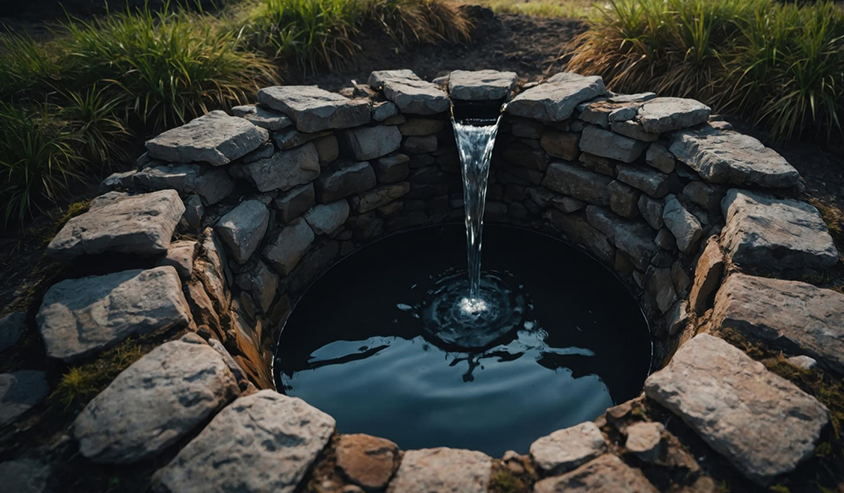In the modern quest for the purest drinking water, consumers have turned to high-tech solutions like RO (Reverse Osmosis) water systems. These advanced purifiers are lauded for their ability to deliver crystal-clear water by removing a range of soluble impurities. However, in their robust cleansing, they also deplete minerals content from water. It's crucial not to compromise on a system's precision for the sake of mineral retention since low-precision filters may leave behind pollutants, posing healthy risks. Striking the right balance between an RO water purifier's thoroughness and the beneficial minerals is akin to choosing between wholesomeness and purity-fortunately, we can remineralize.

How RO Water Systems Strip Impurities and Minerals
Reverse Osmosis (RO) technology is a sophisticated aspect of water treatment designed to eliminate almost all dissolved impurities. The system forces water through a semipermeable membrane, which acts as an ultra-fine filter that captures particles larger than water molecules including contaminants like pesticides and heavy metals, as well as beneficial minerals. While maintaining some mineral levels might seem advantageous, using a less precise filter is not recommended, as this can lead to inadequate removal of harmful substances and pose health risks. Therefore, RO water systems are favored for their assurance in purifying water. Ensuring the water is devoid of any harmful elements is the top priority, after which one can safely reintroduce essential minerals through various methods if needed.
Is Remineralization Needed After RO Purification?
RO water systems are well-known champions at purifying water and ensuring that we drink substance-free, clean water. Reintroducing the mineral content, a step called remineralization can be beneficial for several reasons. It not only potentially enhances the flavor of the water but can also add back trace elements like calcium and magnesium, which play roles in our overall health.
Yet, it's important to understand that remineralizing water isn't necessary for everyone. Our diets are typically rich in minerals, making the mineral content in water less critical for our nutritional needs. In fact, the majority of our daily mineral intake comes from the food we eat.
Moreover, specific uses of water don't require added minerals. For instance, water used in humidifiers or for irrigation of certain plants doesn't need to be mineral-rich. Some plants, particularly carnivorous types, may even thrive better with less mineral content. Also, there's a segment of consumers who simply prefer the pure, clean taste of RO water without any additional mineral taste.

Remineralization Options for RO Water Systems
However, there are several popular remineralization methods available for those looking to enhance their water:
- Mineral Filters: A common and straightforward method is incorporating a mineral filter as part of your RO water.This filter sits at the final stage, where it enriches the water with beneficial minerals like calcium and magnesium. However, if you decide later that you need pure RO water without minerals-for certain plants or appliances-you might find this setup less flexible.
- Electrolytic Remineralization: Another approach involves using an electrical process that adds minerals back into the water. This technology can be precise but might be more complex to manage for the average user.
- Mineral Solutions: Adding a pre-measured mineral solution directly to water is a simple way to control the exact amount of minerals you're consuming.
- Bluevua Patented Remineralization Filter: The Bluevua remineralization filter offers a user-friendly design that conveniently attach or detach from the top of your glass carafe with one-handed operation. It allows for a swift switch between mineral-enriched and pure RO water. If you need pure RO water for devices like humidifiers, simply remove the filter, ensuring your appliance to function optimally. When you want mineral-rich water, just reattach the filter and you're ready to enjoy. This presents a flexible and convenient solution that adapts to various lifestyles and preferences.

How to Choose an RO Water Purifier with Remineralization
Here's how to pick one that suits your needs:
1. Understand the Mineral Addition Technology
- Varied Methods: Some RO systems have a special filter after the main purification process that adds minerals back. Others might use a fancy electrolytic process or let you manually add minerals with a solution.
- Match Your Needs: Think about what you prefer. Do you want something super simple, or are you okay with a bit more complexity for advanced control?
2. Check Purification Efficiency
- Certifications Are Key: Look out for seals of approval from recognized bodies that confirm the system can really take out the bad stuff from your water.
- Consistent Purity: The purifier should consistently deliver pure water because if it doesn't, the remineralization part won't matter much.
3. Evaluate the Mineralization Balance
- Just Right: You don't want too many or too few minerals. Find a system that lets you hit the sweet spot, giving you clean and mineral-balanced water.
- Customizable Levels: Bonus points if the system allows you to adjust which minerals get added back in-that way, you can tailor it to your taste and health needs.
4. Consider Maintenance and Replacement Costs
- Lifecycle Costs: Get the scoop on how long the filters last and how much they cost to replace. A system with a long-lasting filter could save you money over time.
- Ease of Replacement: Also, think about how easy it is to buy new filters or parts. If they're tough to find or replace, that's going to be a hassle down the line.

Ensure Purity and Nutrition with Bluevua ROPOT (UV)
When selecting a RO water purification system with remineralization, the Bluevua ROPOT (UV) stands out for striking the perfect balance between eliminating impurities and enriching water with vital minerals. Its 6-stage filtration process is meticulously designed to meet the standards of direct drinking water, while the included remineralization filter-monitored and certified by authoritative third-party organizations-ensures that the water is not just pure but nutritionally enhanced. With its remineralization filter lasting up to six months and saving $3,328 per year on bottled water (based on $2 per 20 oz alkaline bottled water), the ROPOT (UV) exemplifies commitment to both excellence and economy.
In the broader landscape of water purification, choosing Bluevua RO water system not only reflects a dedication to quality but also an understanding of healthful living. From assessing mineral addition technologies and ensuring purification efficiency to finding the right mineral balance and considering maintenance costs, the ROPOT (UV) represents the synthesis of these critical considerations. It encapsulates the ideals of modern water purification technology: delivering water that's safe, tastes good, and supports a healthy lifestyle.





Leave a Comment
All comments are moderated before being published.
This site is protected by hCaptcha and the hCaptcha Privacy Policy and Terms of Service apply.